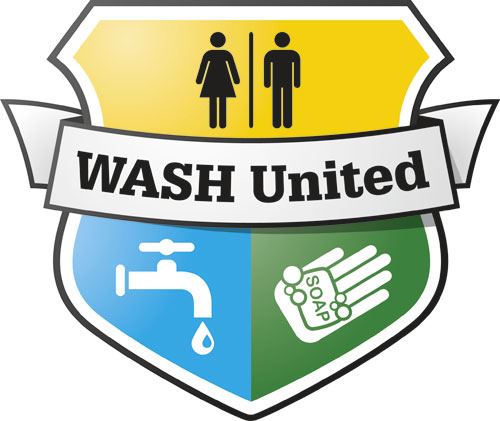Raising awareness on MHM - Stories from India, Kenya and Bangladesh
Countries: India, Kenya and Bangladesh
Contents
[hide]India, Kenya and Bangladesh: Raising awareness on MHM
Basic data:
WASH United utilizes fun, games and positive communication as effective ingredients for challenging menstrual taboos and empowering girls. WASH United has trained over 2.300 students (including 500 boys) and more than 60 teachers on MHM in India, Kenya and Bangladesh between 2013 and 2014 in menstrual hygiene management.
The project and the experiences:
Menstrual hygiene is a topic that is hardly included into students’ education. To change this, WASH United uses innovative games, videos and discussions to address menstrual hygiene management (MHM). Together with local partners, WASH United has trained over 2.300 students (including 500 boys) and more than 60 teachers on MHM in India, Kenya and Bangladesh between 2013 and 2014.
The training of girls does not only provide knowledge, but also encourages good hygiene practices for usage of products and their disposal. In addition, it helps girls to understand that they are not alone with their problems, and that others share their challenges and questions around myths and taboos. Hence, the training affirms solidarity. In Kenya, the MHM trainings were an extension of the WASH in Schools curriculum. In Bangladesh, group discussions were conducted beforehand to build up trust and to understand the key issues that needed to be discussed during MHM trainings. Having fun while playing games is beneficial, as it creates a positive atmosphere around a topic traditionally shrouded in silence and shame.
The training for boys facilitates general knowledge around puberty and the meaning of menstrual hygiene. Most importantly, the curricula for boys aim to empower them in their roles as supporters to sisters, mothers and female classmates. This includes discussions about myths and taboos to avoid misconceptions and to encourage them to break cultural barriers.
Sumitra Rani Dutta, a teacher at Kazi Jalaluddin Girls High School in Sylhet, Bangladesh says: “Generally Bangladeshi women have a number of [menstrual] taboos to follow. For Sylhet, the amount of taboos is even more. So, this program is quite apt. The girls have learnt a lot. Hope they will be able to change themselves in the desired manner as well as manage to place themselves better in the society. Looking forward to such programs again in the future, especially in the rural area.”
The objectives of the training for teachers are to gain critical knowledge and thus to feel comfortable, while discussing pubertal changes at school, and to encourage them to play the required supportive role for students. Ultimately, they should be able to conduct MHM education in the long-run.
It is advised to check in with the students one to two months after the trainings to deepen their knowledge and to evaluate the impact of the trainings. In Kenya, the trainings were conducted with local NGOs, which will ensure sustainability on the ground as they are in continuous contact with the schools.
The key lessons of the story:
WASH United is an international non-profit organisation that pioneers the use of fun, educational games, sport star ambassadors and strictly positive messages to increase the relevance of sanitation and hygiene and to facilitate behaviour change. WASH United designs and implements awareness raising campaigns and WASH in Schools programmes in Asia and Sub-Saharan Africa. WASH United believes that children are key agents of change. As children spend most of their time at school, this is the best place to learn good WASH behaviour.
Contribution to the SuSanA sustainability criteria
Health and Hygiene: game based trainings can change WASH behaviour sustainably
Socio-cultural and institutional aspects: Girls and boys learn that menstruation is a natural process and nothing to be ashamed of. This new knowledge eventually leads to lower absence rates at school during menstruation.
Project details
Type of project: MHM Promotion Project
Project period: 2013-2014
Start of operation: 2014
Project scale: Training for over 2.300 students (including 500 boys) and more than 60 teachers on MHM in India, Kenya and Bangladesh between 2013 and 2014
Address of project location: Schools in India, Kenya and Bangladesh
Implementing institution: WASH United
Supporting agency: Local partners
WASH United develops cutting-edge solutions in the fields of WASH advocacy and campaigns, behaviour change communication and the human rights to water and sanitation, and partners with strong organisations that can implement at scale. With their trade-mark play-based approach they helped train more than 200,000 children in Sub-Saharan Africa and South Asia in good WASH behaviours (including menstrual hygiene management).
Contact
Ina Jurga
WASH United
Ina.jurga![]() wash-united.org
wash-united.org
Denise Reck
WASH United
denise.reck![]() wash-united.org
wash-united.org

